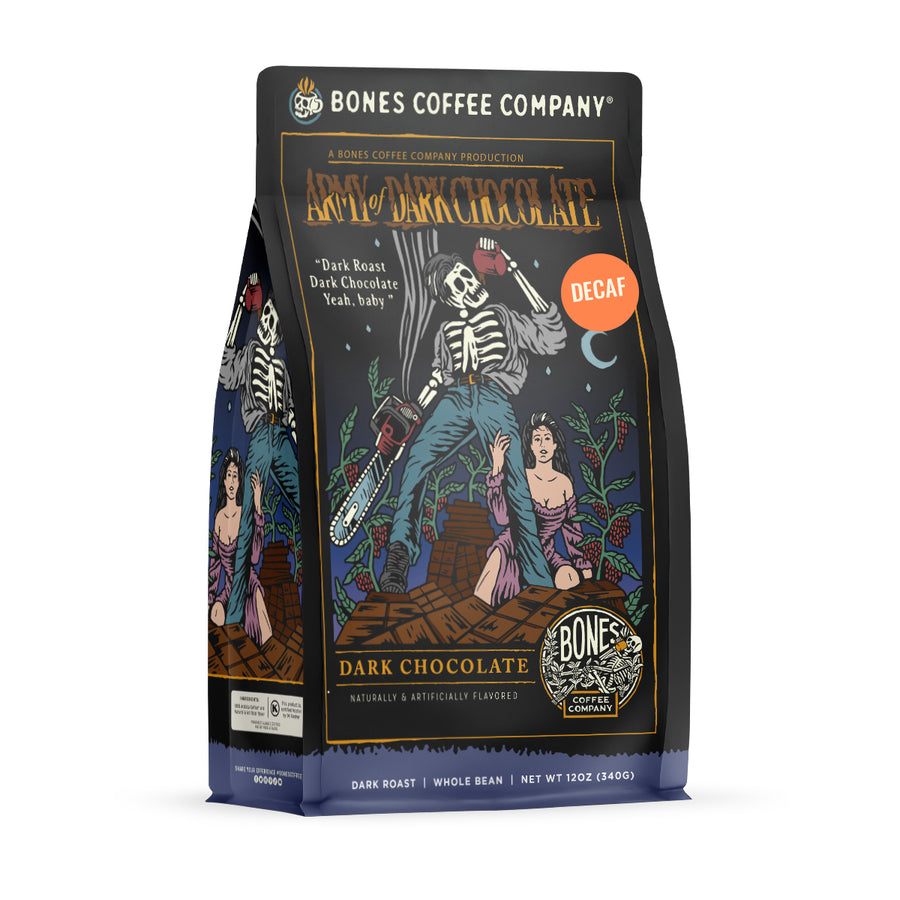If you love the rich taste of coffee but prefer it without the buzz, you’ve probably wondered: does decaf coffee dehydrate you? While regular coffee has a reputation for causing dehydration due to its higher caffeine content, drinking decaf coffee plays by a different set of rules.
If you're trying to cut back on caffeine or improve hydration, knowing when and how to choose decaf coffee can help support both your energy and fluid intake goals. Let’s break down the facts.
What is Decaf Coffee?
Decaf coffee—short for decaffeinated coffee—is made by removing most of the caffeine from green (unroasted) coffee beans before they are roasted.
While many assume that decaf means completely caffeine-free, that’s not entirely accurate. The average cup of decaf coffee contains about 2 to 5 milligrams of caffeine, compared to around 95 milligrams in a typical cup of regular caffeinated coffee.
The decaffeination process occurs prior to roasting and aims to maintain the integrity of the coffee’s flavor while reducing caffeine content. There are several methods used to remove caffeine, each with its own approach to balance effectiveness and taste.
All of them rely on hot water, solvents, or carbon dioxide to dissolve and extract the caffeine while leaving the flavor compounds intact.
Swiss Water Process
A 100% chemical-free method that uses hot water, osmosis, and a flavor-rich Green Coffee Extract (GCE) to draw out caffeine while preserving the original flavor. This process removes up to 99.9% of caffeine and helps maintain a clean and natural decaf coffee taste.
Mountain Water Process
Similar to the Swiss Water Process, it combines pure mountain water and charcoal filtration to gently extract caffeine without chemicals. Known for producing smooth, clean decaffeinated coffee, this method highlights the coffee’s natural flavor profile.
Carbon Dioxide (CO₂) Process
Uses pressurized, supercritical CO₂ to selectively extract caffeine while preserving most of the flavor compounds. It’s effective but requires advanced technology and is less commonly used.
Solvent-Based Methods
Food-safe solvents like ethyl acetate or methylene chloride dissolve caffeine from the beans. After processing, beans are thoroughly rinsed and dried. While efficient, this method is avoided by those looking for solvent-free decaf.
Triglyceride Method
Involves soaking green beans in hot water and coffee oils derived from spent grounds. The triglycerides in the oils absorb caffeine while helping retain the beans’ aromatic compounds.
For a clean cup with no chemical interference, Bones Coffee Company uses both the Swiss Water and Mountain Water Processes in its decaf selections. That means you can enjoy full-bodied, flavorful decaf coffee with confidence, day or night.
No matter how it’s made, the goal of decaffeinated coffee is the same—to reduce caffeine while preserving flavor.
Does Decaf Coffee Have Enough Caffeine to Dehydrate You?
In short, no—drinking decaf coffee doesn’t contain enough caffeine to dehydrate you. While caffeine can act as a mild diuretic at high levels, research shows this only becomes a concern when daily intake exceeds around 250–400 mg.
With decaf being roughly 98% water, it contributes positively to your fluid intake alongside drinks like tea and water, especially when you’re sensitive to caffeine.
Caffeine works by blocking adenosine receptors in the brain and impacting liver enzyme levels, but in tiny amounts—like what’s found in decaf—it has minimal systemic effects.
A 2014 study comparing moderate coffee consumption (around 4 mg of caffeine per kilogram of body weight) to water found no significant differences in hydration levels, urine output, or overall fluid balance in habitual coffee drinkers. When consumed in moderation, coffee offers hydrating qualities comparable to water.
Additionally, decaf coffee retains much of the natural goodness found in regular coffee, including chlorogenic acids—antioxidants linked to reduced inflammation and improved heart health. And without worrying about a caffeine crash, you can enjoy more cups throughout the day.
So, unless you have extreme caffeine sensitivity, you can confidently sip decaf coffee knowing it won’t dehydrate you—and may even help keep you hydrated.
How Does Regular Coffee Compare?
The biggest difference between regular coffee and decaf coffee comes down to the caffeine content and how the body responds in terms of hydration, energy, and suitability for certain health needs.
Higher levels of caffeine can have a mild diuretic effect and temporarily increase urination, especially in people who aren’t regular caffeine consumers. Those who drink coffee regularly often build a tolerance to this effect.
In comparison, drinking decaf avoids that concern entirely. Because it has had most caffeine molecules removed, it’s an ideal option if you're trying to stay hydrated, are sensitive to caffeine, or simply want a coffee that won’t interfere with your sleep.
It’s also a better choice for:
- Pregnant women
- People with high blood pressure
- Those managing acid reflux
- Anyone who wants a relaxing nighttime brew
Since decaf retains the flavor of the original coffee beans, you don’t have to sacrifice taste to meet your health or lifestyle needs.
Here’s a quick comparison:
| Feature | Regular Coffee | Decaf Coffee |
| Caffeine per 8-oz cup | ~95 mg | ~2–5 mg |
| Diuretic effect | Mild to moderate | Minimal to none |
| Hydration contribution | Over 95%+ water | Over 98%+ water |
| Energy boost | Strong | Mild or none |
| Sleep disruption risk | Higher (especially at night) | Very low |
At Bones Coffee Company, many of your favorite flavors are available in both regular and decaf versions. Whether you're reaching for a morning caffeine kick or a relaxing late-night brew, you can enjoy the same bold, flavorful experience, tailored to your needs.
Can Decaf Coffee Help With Hydration?
Now that we know decaffeinated coffee doesn't contain enough caffeine to cause dehydration, the next logical question is—can decaf coffee help keep you hydrated? The answer is yes.
Decaf coffee naturally contributes to your fluid intake throughout the day, since most of the caffeine is removed during decaffeination processes. Thus, the diuretic effect is minimal to none for most people, even for regular coffee drinkers.
If you're considering switching to decaf for better hydration or to reduce your overall caffeine intake, you're making a smart move, particularly if you're managing factors like blood pressure, sleep quality, or caffeine sensitivity.
It’s also a helpful option for people looking to enjoy the health benefits of coffee—like antioxidants and chlorogenic acids—without the stimulant effects of caffeine. While decaf supports hydration, it shouldn’t completely replace water.
Hydration Tip: Enjoy your decaf cup of coffee plain or with minimal add-ins. Excess cream and sugar may offset the health benefits and affect hydration. |
Choose Decaf Coffee That Feels Like the Real Thing
Now that you know decaf won’t leave you parched, it’s the perfect time to explore flavors that make swapping easy. If you’re looking to shake up your coffee routine without compromising taste, decaf is a great pick. And yes, it still counts toward your fluids for the day.
At Bones Coffee Company, we craft small-batch, roasted-to-order decaf options that taste just as bold and satisfying as the original, all with low caffeine and big personality that make decaf anything but boring. Ready to find your perfect cup of decaf? Join our Coffee Club and save 20% on your first order!









